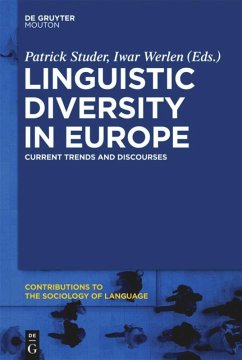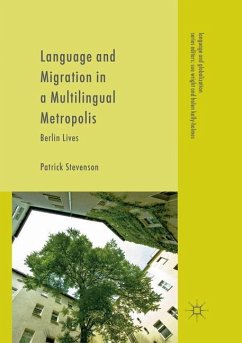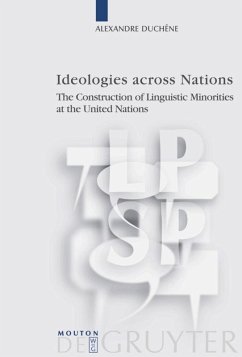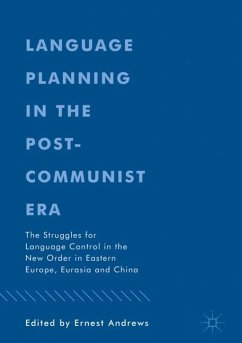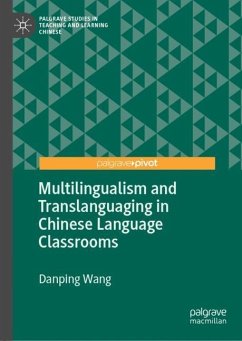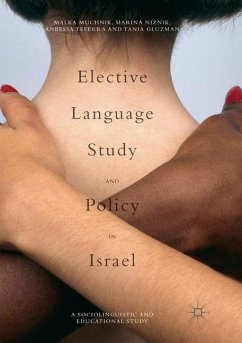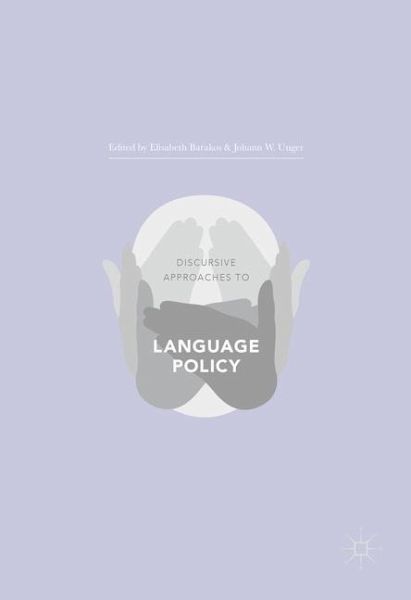
Discursive Approaches to Language Policy
Versandkostenfrei!
Versandfertig in 6-10 Tagen
91,99 €
inkl. MwSt.

PAYBACK Punkte
46 °P sammeln!
This book brings together the fields of language policy and discourse studies from a multidisciplinary theoretical, methodological and empirical perspective. The chapters in this volume are written by international scholars active in the field of language policy and planning and discourse studies. The diverse research contexts range from education in Paraguay and Luxembourg via businesses in Wales to regional English language policies in Tajikistan. Readers are thereby invited to think critically about the mutual relationship between language policy and discourse in a range of social, politica...
This book brings together the fields of language policy and discourse studies from a multidisciplinary theoretical, methodological and empirical perspective. The chapters in this volume are written by international scholars active in the field of language policy and planning and discourse studies. The diverse research contexts range from education in Paraguay and Luxembourg via businesses in Wales to regional English language policies in Tajikistan. Readers are thereby invited to think critically about the mutual relationship between language policy and discourse in a range of social, political, economic and cultural spheres. Using approaches that draw on discourse-analytic, anthropological, ethnographic and critical sociolinguistic frameworks, the contributors in this collection explore and refine the 'discursive' and the 'critical' aspects of language policy as a multilayered, fluid, ideological, discursive and social process that can operate as a tool of social change as well as reinforcing established power structures and inequalities.





